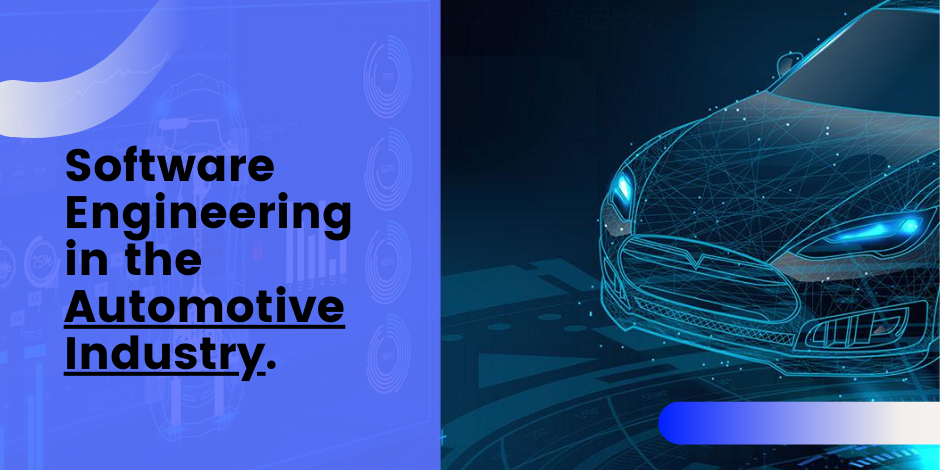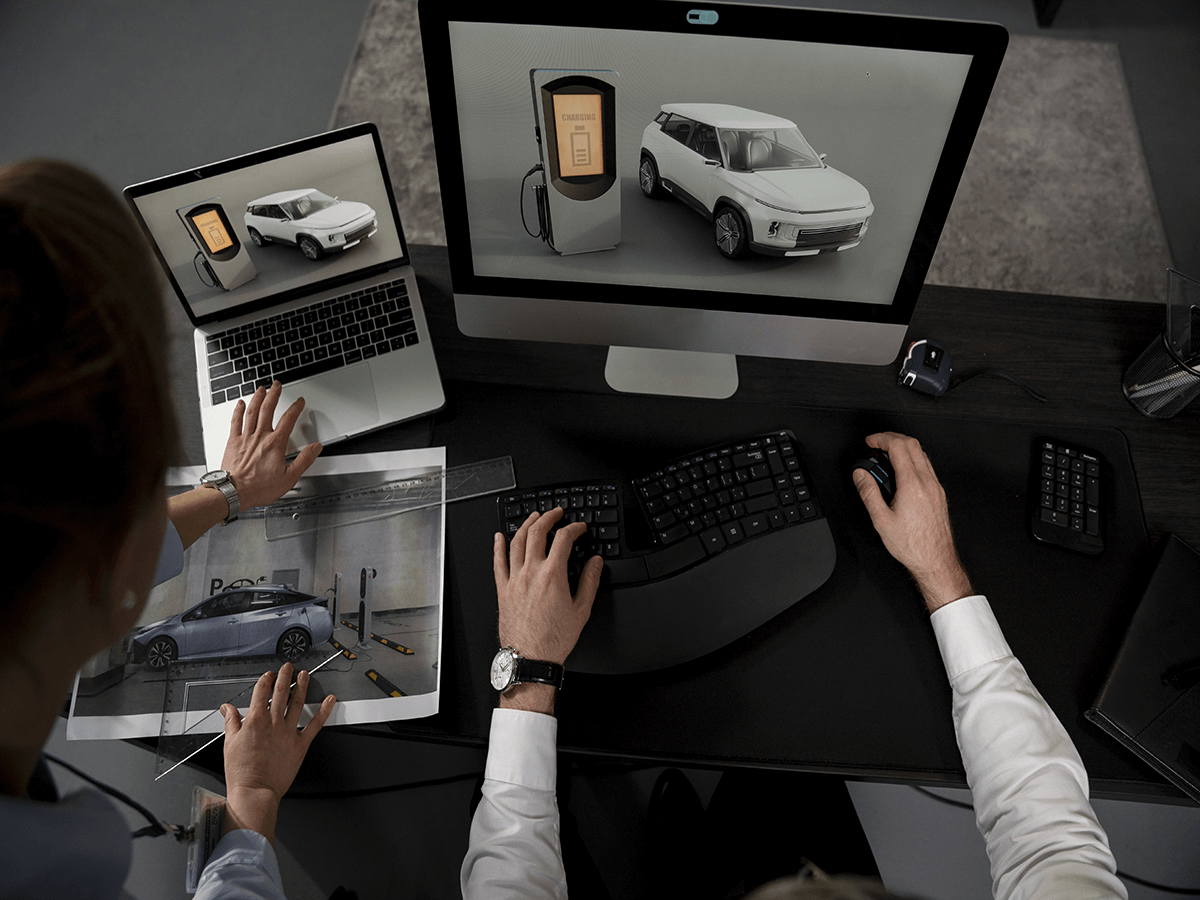The Role of Software Engineering in the Automotive Industry

Stay Informed With Our Weekly Newsletter
Receive crucial updates on the ever-evolving landscape of technology and innovation.
Software engineering plays a crucial role in the automotive industry, revolutionising the way vehicles are designed, manufactured, and operated.
According to a recent report by McKinsey & Company, the global automotive software and electronics market is expected to reach $462 billion by 2023, estimating a 5.5 per cent CAGR from 2019 to 2030.
With the increasing integration of software in cars, understanding the significance of software engineering is essential for the industry’s future advancements.
Understanding software engineering and its significance

Software engineering can be defined as the systematic approach to designing, developing, and maintaining computer software.
It encompasses a range of disciplines, including programming, testing, and software project management.
Software engineering is a multidisciplinary field that combines principles from computer science, mathematics, and engineering.
In the automotive industry, software engineering is pivotal in enabling the efficient and reliable operation of vehicles, as well as advancements in features like infotainment.
It involves the application of engineering principles to the development of software systems, ensuring that they meet functional and quality requirements.
This systematic and structured approach is crucial in creating software products that are reliable, scalable, and maintainable.
One of the key aspects of software engineering is the software development life cycle (SDLC).
This is a process that guides the development of software from its initial concept to its final release.
The SDLC consists of several phases, including requirements gathering, system design, coding, testing, and maintenance.
Each phase is carefully planned and executed to ensure the successful delivery of a high-quality software product.
Defining software engineering
Software engineering focuses on applying engineering principles to the development of software systems.
It involves a systematic and structured approach, ensuring that software products meet functional and quality requirements.
This approach includes the use of various tools and techniques, such as software modelling, code generation, and automated testing.
Software engineers are responsible for designing, coding, testing, and maintaining software systems.
They collaborate with stakeholders, such as users, customers, and other members of the development team, to understand their requirements and translate them into software solutions.
They also ensure that the software meets industry standards and best practices.
Software engineering is not limited to the development of standalone applications.
It also encompasses the development of embedded software, which is software that is embedded within a hardware device.
Embedded software is commonly found in various industries, including automotive, aerospace, and healthcare.
It is used to control and monitor the operation of devices, such as cars, aeroplanes, and medical devices.
The importance of software engineering in today’s world
In today’s world, software engineering is an essential field.
It is a driving force behind technological innovations and plays a significant role in various industries.
In the automotive sector, software engineering plays a critical role in enhancing vehicle performance, safety, and user experience.
Modern vehicles are equipped with numerous software systems that control various aspects of their operation.
These systems include engine management, anti-lock braking, traction control, and infotainment.
Software engineering ensures that these systems are developed to meet high standards of reliability, efficiency, and safety.
The intersection of software engineering and the automotive industry

The automotive industry has experienced a significant evolution in terms of software integration in vehicles.
The integration of advanced software technologies has transformed cars into intelligent systems with enhanced functionalities.
The evolution of software in cars
Software in cars has evolved from basic functionalities, such as engine control and infotainment systems, to more advanced features like autonomous driving and connected services.
This evolution brings new possibilities for enhanced vehicle performance, safety, and convenience.
The impact of software engineering on automotive design
Software engineering has also influenced the way vehicles are designed.
With the increasing complexity of software systems, automotive designers must consider software integration from the early stages of vehicle development.
This ensures a seamless blend of hardware and software elements for optimal performance.
Key areas where software engineering is applied in the automotive industry
Software engineering is applied to various areas in the automotive industry, enabling the development of advanced features and systems that enhance vehicle performance and user experience.
Vehicle control systems
Software engineering plays a vital role in developing vehicle control systems, including engine management, braking, and suspension control.
These systems optimise performance, ensuring a smooth and efficient driving experience.
Infotainment and connectivity
Infotainment and connectivity systems rely heavily on software engineering.
These systems provide drivers and passengers with entertainment, navigation, and communication services, making driving more enjoyable and convenient.
Safety and driver assistance systems
Increasingly, software engineering is applied to develop safety and driver assistance systems.
These systems include features such as adaptive cruise control, lane-keeping assist, and collision avoidance.
By integrating software and sensors, these systems enhance vehicle safety and reduce accidents.
The challenges of integrating software engineering in the automotive industry
Despite the numerous benefits that software engineering brings to the automotive industry, some challenges must be overcome to ensure successful integration and implementation.
Managing complexity in automotive software
The complexity of automotive software is increasing rapidly. With software controlling various interconnected components and systems, managing the complexity becomes a crucial challenge.
Software engineers must develop efficient software architectures and design patterns to ensure the maintainability and scalability of automotive software.
Ensuring safety and reliability in automotive software
In the automotive industry, safety is paramount.
Software engineering must address safety concerns to ensure that automotive software functions reliably and does not compromise vehicle and occupant safety.
Rigorous testing, validation, and certification processes are critical to minimise risks and potential failures.
The future of software engineering in the automotive industry

The future of software engineering in the automotive industry holds immense potential for further innovation and advancements.
The role of software in autonomous vehicles
Autonomous vehicles rely heavily on software for perception, decision-making, and control.
As society moves towards self-driving cars, software engineering will play a crucial role in developing sophisticated algorithms and ensuring safe and efficient autonomous driving.
Software engineering and the electric vehicle revolution
The rise of electric vehicles poses new challenges and opportunities for software engineering.
Efficient energy management, battery charging, and smart grid integration are areas where software engineering becomes critical in optimising electric vehicle performance and supporting infrastructure.
The impact of emerging technologies on automotive software engineering
Emerging technologies such as artificial intelligence, virtual reality, and blockchain have the potential to transform the automotive industry.
Software engineering will be at the forefront of harnessing these technologies to create innovative solutions and improve the overall automotive experience.
In conclusion
Software engineering plays a vital role in the automotive industry.
Its significance lies in enabling the integration of advanced software systems in vehicles, enhancing performance, safety, and user experience.
From vehicle control systems to safety features and autonomous driving, software engineering is driving the future of automotive innovation.
To fully leverage its potential, managing complexity, ensuring safety, and embracing emerging technologies will be crucial for the industry’s sustainable growth.
Learn more about software engineering in the automotive industry by taking our in-depth Software Engineering programme.
Our programmes are designed to prepare you for a bright future in software development.
Alternatively, book a free career consultation with a member of our team to discuss the programme further.




